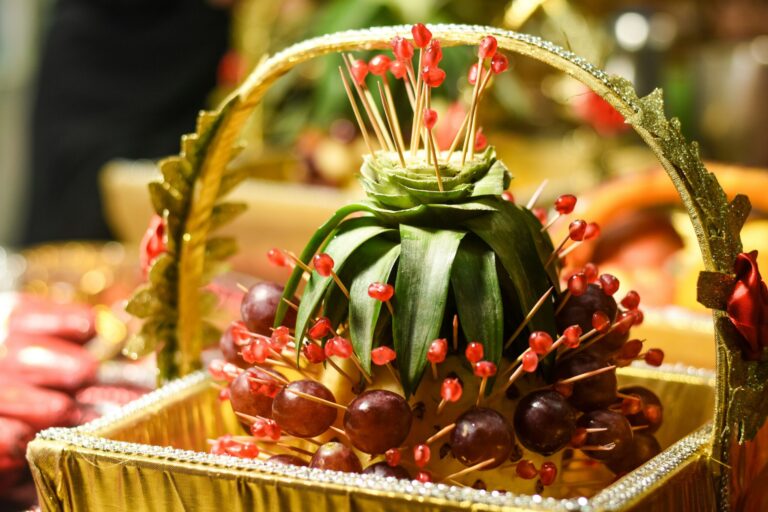The Heart of Napa’s Culinary Craftsmanship
On April 3rd, 2025, the Napa Valley Olive Oil & Artisanal Foods Festival took place at the beautiful Oxbow RiverStage, drawing more than 3,000 attendees for a day of indulgence in the region’s best locally produced olive oils, cheeses, artisan breads, and other delicacies. The festival not only showcased the incredible products Napa Valley has to offer but also celebrated the artisans who dedicate themselves to preserving traditional food production techniques while embracing innovation in their craft.
With its focus on sustainability, local sourcing, and quality craftsmanship, the 2025 Olive Oil & Artisanal Foods Festival reflected Napa’s commitment to small-batch, organic food production. Attendees had the opportunity to learn about the craftsmanship behind each product, while also enjoying tastings that highlighted the best of Napa’s agricultural bounty.
Key Players and Notable Moments
One of the major highlights of the festival was the appearance of renowned olive oil expert, Dr. Joseph Bove, who led a seminar on the art of olive oil tasting. Dr. Bove, who has spent decades studying olive oil production and quality, gave attendees a thorough understanding of how to distinguish high-quality olive oils from lower-quality ones, focusing on factors like freshness, acidity, and the role of terroir in flavor development. His session was incredibly popular, with attendees eager to learn the nuances of olive oil tasting that they could apply to their own culinary experiences at home.
The festival also featured an “Olive Oil Pairing Challenge,” where local chefs competed to create the best dishes using Napa Valley’s finest olive oils. The winner, Chef Sophie Longo of Harvest Kitchen, wowed the judges with her signature “Citrus-Infused Olive Oil Cake” paired with a tangy goat cheese mousse. The dish impressed with its balance of flavors, proving that olive oil can be as versatile in sweet dishes as it is in savory ones.
Additionally, attendees had the opportunity to sample a range of other local artisanal products, from Napa’s famous cheeses to honey, jam, and hand-crafted pasta. A particularly memorable moment came when small-batch cheesemaker Jennifer Stevens of Stevens Family Dairy discussed her approach to dairy farming and cheese production, emphasizing the importance of animal welfare, sustainable farming practices, and the relationship between quality ingredients and exceptional cheese.
Sustainability and Local Sourcing: The Festival’s Guiding Principles
Sustainability and local sourcing were key themes throughout the festival. Many of the exhibitors emphasized how they minimize their environmental impact by sourcing ingredients locally, reducing waste, and using eco-friendly packaging. Napa’s commitment to organic farming and sustainable agriculture was evident in the many vendors who showcased products made without chemicals, pesticides, or artificial additives.
For example, Napa Valley Olive Oil Company, known for its biodynamic farming practices, used the festival as an opportunity to introduce their new line of organic extra virgin olive oils, produced from olives grown in Napa’s fertile soil. Their commitment to sustainable farming was reflected in their production processes, which use less water and encourage biodiversity within their orchards.
The festival also highlighted the growing trend of plant-based eating, with many of the food vendors offering dairy-free, gluten-free, and vegan options. From vegan cheese tastings to plant-based charcuterie boards, the festival offered a wide range of options that cater to the diverse dietary preferences of modern consumers.
Behind the Scenes: Organizing the Festival of Napa’s Best
Organizing an event of this scale involved significant behind-the-scenes work. From sourcing local ingredients to coordinating with vendors, chefs, and olive oil producers, the team worked tirelessly to ensure that every aspect of the festival was curated to perfection. One of the logistical challenges was ensuring that all olive oil samples were stored at the correct temperature and kept fresh throughout the day, as exposure to heat or light can compromise the quality of the oil.
The event organizers also coordinated with local farms and food artisans to bring the best of Napa’s culinary scene to attendees. From managing the vendor lineup to creating a seamless experience for visitors, the team worked diligently to ensure that every aspect of the festival highlighted the best of Napa’s food culture.
The Lasting Impact: Celebrating Napa’s Agricultural Heritage
The 2025 Napa Valley Olive Oil & Artisanal Foods Festival solidified Napa’s reputation as a premier destination for food lovers, especially those interested in sustainably sourced, high-quality products. The festival helped shine a spotlight on the hard-working artisans who continue to preserve Napa’s agricultural heritage while embracing the future of food production.
The event also played a crucial role in raising awareness about the importance of sustainability in the food industry, helping to foster a deeper understanding of how consumers can make more informed, eco-conscious choices when it comes to their food. As Napa continues to evolve as a hub for artisanal food production, events like this will continue to shape the future of the culinary world.
Conclusion: Napa Valley’s Continuing Commitment to Quality and Sustainability
The 2025 Napa Valley Olive Oil & Artisanal Foods Festival was a resounding success that highlighted the importance of local sourcing, sustainability, and craftsmanship in today’s food landscape. With Napa’s deep agricultural roots and forward-thinking approach to food production, the festival not only celebrated the region’s culinary prowess but also set the stage for a more sustainable, eco-conscious future in the food industry.



